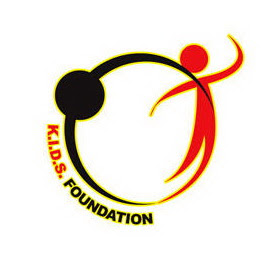Cheering is the uttering or making of sounds encouraging, stimulating or exciting to action, indicating approval or acclaiming or welcoming persons, announcements of events and the like.
The word cheer meant originally face, countenance, expression, and came through Old French into Middle English in the 13th century from Low Latin cara, head; this is generally referred to the Greek καρα;. Cara is used by the 6th-century poet Flavius Cresconius Corippus, Postquam venere verendam Caesilris ante caram (In Laud em Justini Minoris). Cheer was at first qualified with epithets, both of joy and gladness and of sorrow; compare She thanked Dyomede for ale ... his gode chere (Chaucer, Troylus) with If they sing ... tis with so dull a cheere (Shakespeare, Sonnets, xcvii.). An early transference in meaning was to hospitality or entertainment, and hence to food and drink, good cheer. The sense of a shout of encouragement or applause is a late use. Defoe (Captain Singleton) speaks of it as a sailor's word, and the meaning does not appear in Johnson.
Of the different words or rather sounds that are used in cheering, "hurrah", though now generally looked on as the typical British form of cheer, is found in various forms in German, Scandinavian, Russian (ura), French (houra). It is probably onomatopoeic in origin; some connect it with such words as hurry, whirl ; the meaning would then be haste, to encourage speed or onset in battle. The English hurrah was preceded by huzza, stated to be a sailors word, and generally connected with heeze, to hoist, probably being one of the cries that sailors use when hauling or hoisting. The German hoch, seen in full in Hoch lebe der Kaiser, &c., the French vive, Italian and Spanish viva, evviva, are cries rather of acclamation than encouragement. The Japanese shout banzai became familiar during the Russo-Japanese War. In reports of parliamentary and other debates the insertion of cheers at any point in a speech indicates that approval was shown. by members of the House by emphatic utterances of hear hear. Cheering may be tumultuous, or it may be conducted rhythmically by prearrangement, as in the case of the Hip-hip-hip by way of introduction to a simultaneous hurrah. The saying "hip hip hurrah" is alleged to have roots going back to the crusaders, then meaning "Jerusalem is lost to the infidel, and we are on our way to paradise. The abbreviation HEP would then stand for Hierosolyma est perdita, "Jerusalem is lost" in Latin.[1]
http://en.wikipedia.org/wiki/Cheering
The word cheer meant originally face, countenance, expression, and came through Old French into Middle English in the 13th century from Low Latin cara, head; this is generally referred to the Greek καρα;. Cara is used by the 6th-century poet Flavius Cresconius Corippus, Postquam venere verendam Caesilris ante caram (In Laud em Justini Minoris). Cheer was at first qualified with epithets, both of joy and gladness and of sorrow; compare She thanked Dyomede for ale ... his gode chere (Chaucer, Troylus) with If they sing ... tis with so dull a cheere (Shakespeare, Sonnets, xcvii.). An early transference in meaning was to hospitality or entertainment, and hence to food and drink, good cheer. The sense of a shout of encouragement or applause is a late use. Defoe (Captain Singleton) speaks of it as a sailor's word, and the meaning does not appear in Johnson.
Of the different words or rather sounds that are used in cheering, "hurrah", though now generally looked on as the typical British form of cheer, is found in various forms in German, Scandinavian, Russian (ura), French (houra). It is probably onomatopoeic in origin; some connect it with such words as hurry, whirl ; the meaning would then be haste, to encourage speed or onset in battle. The English hurrah was preceded by huzza, stated to be a sailors word, and generally connected with heeze, to hoist, probably being one of the cries that sailors use when hauling or hoisting. The German hoch, seen in full in Hoch lebe der Kaiser, &c., the French vive, Italian and Spanish viva, evviva, are cries rather of acclamation than encouragement. The Japanese shout banzai became familiar during the Russo-Japanese War. In reports of parliamentary and other debates the insertion of cheers at any point in a speech indicates that approval was shown. by members of the House by emphatic utterances of hear hear. Cheering may be tumultuous, or it may be conducted rhythmically by prearrangement, as in the case of the Hip-hip-hip by way of introduction to a simultaneous hurrah. The saying "hip hip hurrah" is alleged to have roots going back to the crusaders, then meaning "Jerusalem is lost to the infidel, and we are on our way to paradise. The abbreviation HEP would then stand for Hierosolyma est perdita, "Jerusalem is lost" in Latin.[1]
http://en.wikipedia.org/wiki/Cheering























































